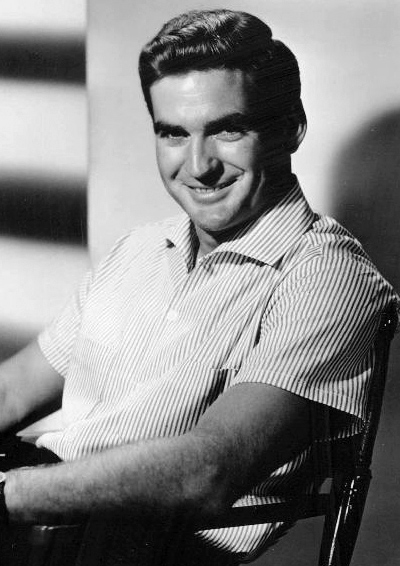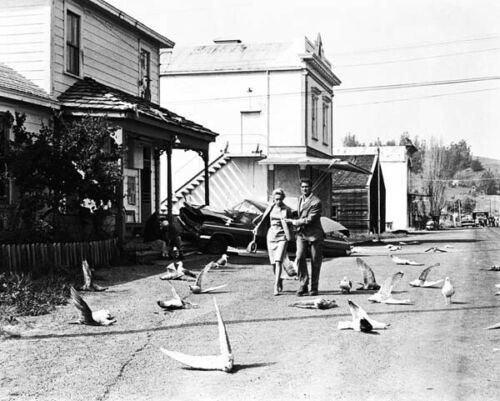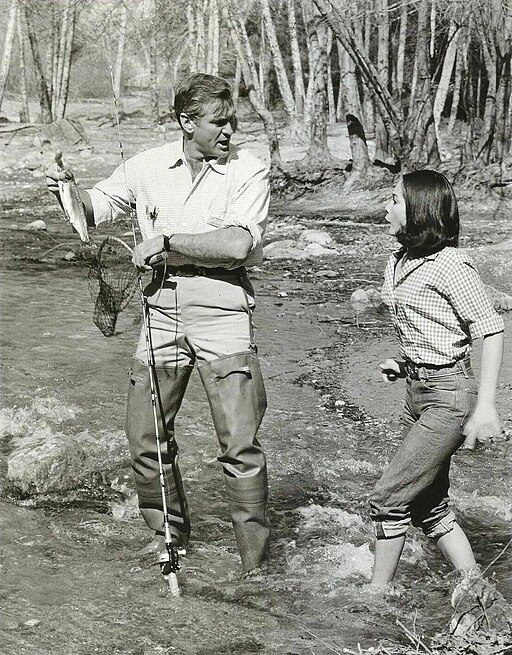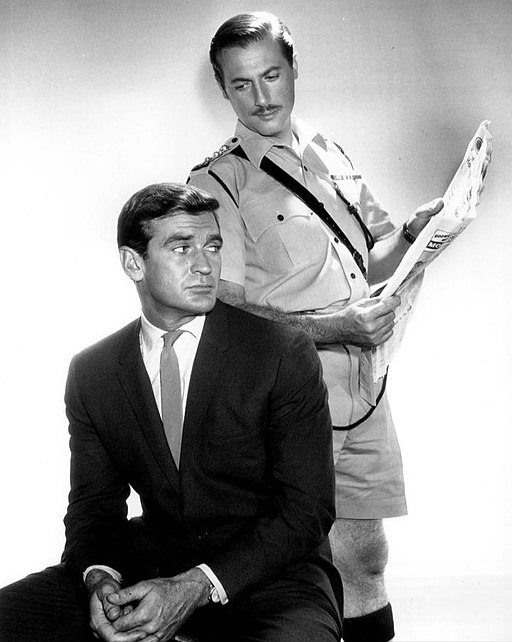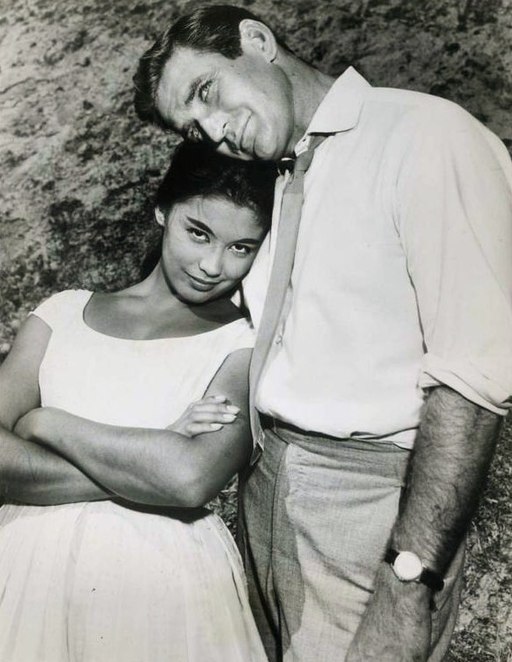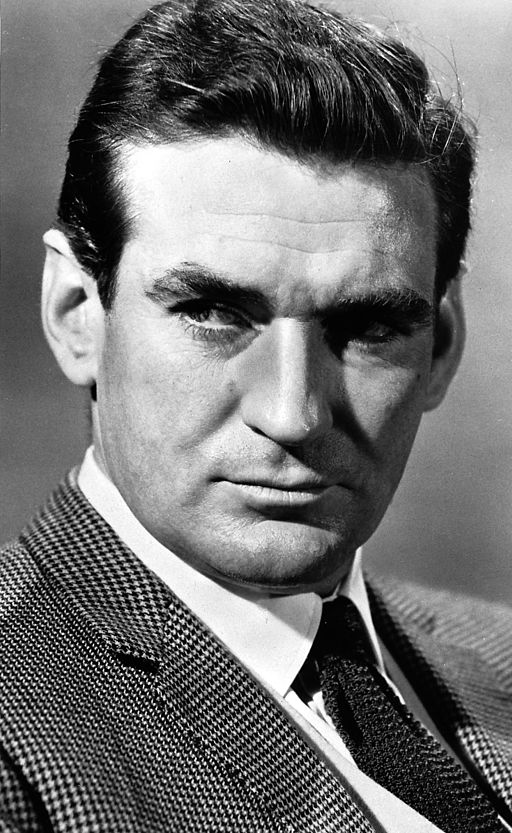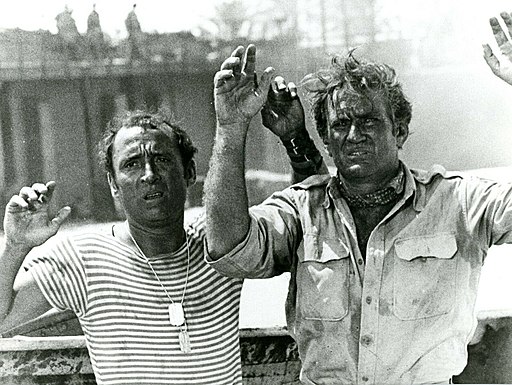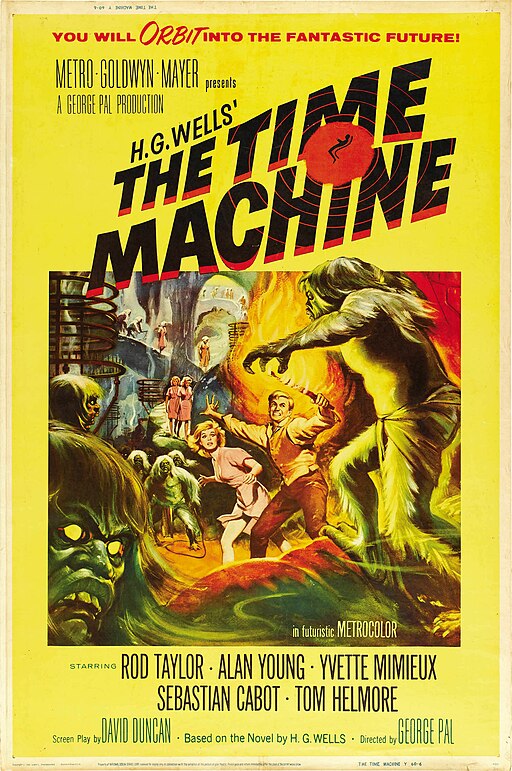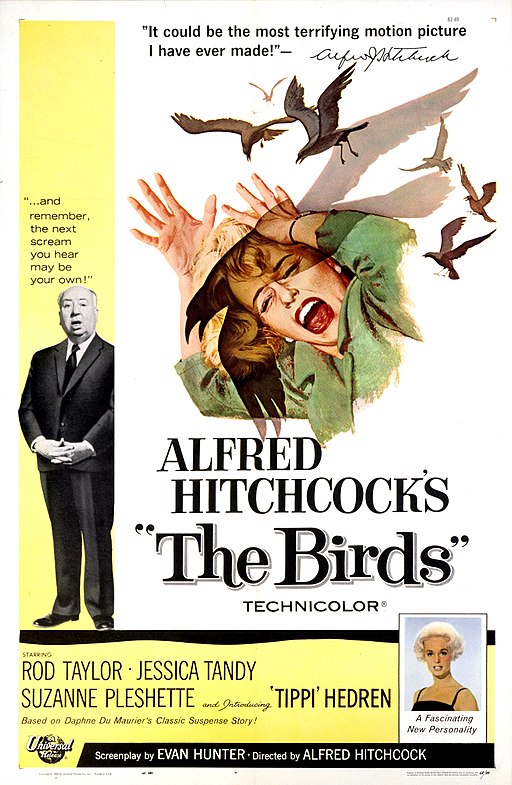Rod Taylor
back| Full Name | Rodney Sturt Taylor |
| Stage Name | Rod Taylor |
| Born | January 11, 1930 |
| Birthplace | Sydney, New South Wales, Australia |
| Died | January 7, 2015 |
| Buried | His ashes were scattered in the Pacific Ocean |
| Married to | Peggy Williams (1951 - 1954) - Mary Hilem (1963 - 1969) - Carol Kikumura (1980 - 2015) |
| Children | Felicia Taylor (born 1964), with Mary Hilem |
| Notable films | The Time Machine (1960) - The Birds (1963) - The Liquidator (1965) - Darker Than Amber (1970) - The Train Robbers (1973) |
Rod Taylor
The Rugged Australian
Rod Taylor, born January 11, 1930, in Sydney, Australia, was a charismatic actor known for his versatility and rugged charm. Initially aspiring to be an artist, he shifted to acting, gaining early success in Australian radio and film. T
aylor's Hollywood breakthrough came with the lead role in "The Time Machine" (1960), which catapulted him to international fame. He showcased his range in various genres, most notably in Alfred Hitchcock's "The Birds" (1963). With a career spanning over six decades, Taylor appeared in numerous films and TV shows, demonstrating a remarkable ability to adapt to both leading and supporting roles.
Rod Taylor is often remembered as "The Rugged Australian," a versatile actor known for his robust charm and commanding screen presence.
Related
Rod Taylor
Biography and Analysis of his Movie Career
Early Years
Rodney Sturt Taylor was born on January 11, 1930, in Sydney, New South Wales, Australia. His father, William Sturt Taylor, was a construction contractor, and his mother, Mona Thompson, was a prolific writer of children's books and short stories. This artistic environment in his household played a significant role in shaping his early interests.
As a young man, Rod was drawn to the visual arts. He attended Sydney's East Sydney Technical and Fine Arts College with the intention of becoming a painter. However, his path took a dramatic turn when he discovered his passion for acting. This was further fueled by his involvement with a local radio station, where he began writing, producing, and acting in radio dramas.
Path to Acting and Hollywood Success
Taylor's acting career began in earnest with his participation in Australian films, most notably his debut in "Inland with Sturt" (1951). Realizing the limitations of the Australian film industry at the time, he moved to Hollywood in the mid-1950s, seeking greater opportunities.
His early years in Hollywood were challenging, with Taylor struggling to find significant roles. He had a minor role in "Giant" (1956), but his scenes were unfortunately cut from the final film. Nevertheless, he persisted and eventually landed the lead role in "The Time Machine" (1960). This film, based on H.G. Wells' novel, was a critical and commercial success, firmly establishing Taylor as a leading actor in Hollywood.
Taylor's rugged good looks and versatile acting skills made him a popular choice for a variety of roles. He starred in Alfred Hitchcock's "The Birds" (1963), showcasing his ability to handle suspenseful and dramatic roles. His filmography during the 1960s and 1970s was diverse, including romantic comedies, action films, and dramas.
Personal Life and Marriages
Rod Taylor was known for his private nature, especially regarding his personal life. He married three times:
- Peggy Williams (1951–1954) – His first marriage, which ended in divorce.
- Mary Hilem (1963–1969) – This union produced his only child, a daughter named Felicia Taylor.
- Carol Kikumura (1980–2015) – His marriage to Carol lasted until his death and was marked by a strong bond and mutual respect.
Apart from acting, Taylor was an avid animal lover and supported various animal rights causes. He also maintained his interest in painting and sculpture, often retreating to these arts for personal fulfillment.
Later Career and Death
As the Hollywood landscape changed, so did the nature of the roles offered to Taylor. He transitioned to television and smaller film roles but remained a respected figure in the industry. His cameo as Winston Churchill in Quentin Tarantino's "Inglourious Basterds" (2009) was a notable appearance in his later years.
Rod Taylor passed away on January 7, 2015, due to natural causes, just a few days shy of his 85th birthday. His death marked the end of a career that spanned over six decades, leaving behind a legacy of diverse and memorable performances. He was remembered as a talented and charismatic actor who brought depth and authenticity to his roles.
Notable Movies featuring Rod Taylor:
1950s
- 1954 "King of the Coral Sea": Taylor's first significant film role, set against the backdrop of the South Pacific, involving pearl divers and a mystery.
- 1955 "Long John Silver": A sequel to "Treasure Island", where Taylor appeared in a supporting role in this swashbuckling adventure.
- 1957 "The Catered Affair": A film about a family planning a large, expensive wedding, with Taylor in a supporting role.
- 1958 "Separate Tables": An ensemble drama set in a British seaside hotel, where Taylor's role is part of a larger narrative about the lives of various residents.
1960s
- 1960 "The Time Machine": Taylor starred as the lead in this science fiction classic, playing an inventor who travels to a distant and troubling future.
- 1962 "The Birds": A horror-thriller directed by Alfred Hitchcock, where Taylor plays a central character besieged by mysteriously aggressive birds.
- 1963 "Sunday in New York": A romantic comedy featuring Taylor as a pilot who becomes involved in a young woman's love life.
- 1965 "36 Hours": A WWII drama where Taylor portrays an American officer who is tricked into revealing Allied invasion plans.
- 1965 "Young Cassidy": A biographical film where Taylor plays Irish playwright Sean O'Casey, depicting his early years.
- 1965 "The Liquidator": Taylor stars as a suave British secret agent in this spy comedy.
- 1967 "Hotel": Set in a New Orleans hotel, Taylor's character navigates various issues as the hotel manager.
- 1968 "The Mercenaries": An action-adventure film where Taylor plays a mercenary involved in the Congo crisis.
1970s
- 1970 "Darker than Amber": Taylor portrays Travis McGee, a character from John D. MacDonald's novels, in this mystery thriller.
- 1973 "The Train Robbers": A western starring John Wayne, with Taylor in a key role as a likable and mysterious stranger.
- 1976 "A Matter of Wife... And Death": A detective film featuring Taylor as a private investigator.
1980s
- 1983 "On the Run": A drama in which Taylor plays a father who confronts his past to protect his son.
2000s
- 2009 "Inglourious Basterds": In Quentin Tarantino's war film, Taylor makes a cameo appearance as Winston Churchill.
Analysis of Rod Taylor’s Acting Style:
Rod Taylor's acting style can be analyzed through several key aspects that defined his performances throughout his career:
Charismatic Presence
Taylor had a natural charisma that shone through in his roles. His screen presence was marked by a blend of ruggedness and charm, making him equally adept at playing approachable, everyman characters and more assertive, authoritative figures.
Versatility
One of the defining features of Taylor's acting was his versatility. He successfully navigated a wide range of genres, from science fiction in "The Time Machine" to suspense in Alfred Hitchcock's "The Birds," as well as romantic comedies, dramas, and action films. This ability to adapt to different genres and characters highlights his range as an actor.
Physicality
Taylor's roles often capitalized on his physical presence. In action-oriented films, he displayed a robust and dynamic physicality. In more dramatic roles, his body language and facial expressions conveyed a depth of emotion and intensity, adding layers to his character portrayals.
Approachability and Relatability
Despite his star status and the larger-than-life characters he sometimes played, there was an approachability to Taylor's performances. He had a knack for portraying characters that audiences could relate to, bringing a sense of realism and authenticity to his roles.
Emotional Depth
Taylor was adept at portraying emotional depth, particularly in complex roles. He had the ability to convey a range of emotions, from vulnerability and sensitivity to strength and determination, often within the same character. This emotional versatility allowed him to create multi-dimensional and memorable characters.
Voice and Diction
His background in Australian radio played a role in developing his voice control and diction. Taylor's voice was distinct and expressive, capable of conveying a wide range of emotions and subtleties of character.
Legacy and Influence
While Taylor may not have been characterized by the method acting approach that became popular in his era, his style was influential in its own right. He represented a bridge between classic Hollywood leading men and the more modern, nuanced performances that became prevalent later. His performances have a timeless quality that continues to resonate with audiences.
Memorable Quotes from Rod Taylor:
From "The Time Machine" (1960)
- As George, the time traveler, Taylor delivers several thought-provoking lines, including:
- "We have all the time in the world."
From "The Birds" (1963)
- In this Hitchcock thriller, Taylor's character, Mitch Brenner, has some memorable exchanges, such as:
- "I think you're the cause of all this. I think you're evil. EVIL!"
From "Sunday in New York" (1963)
- Playing the charming Mike Mitchell, Taylor has some witty and engaging dialogues, like:
- "In my book, love's an absolute. Like the North Star."
From "Young Cassidy" (1965)
- Portraying the Irish playwright Sean O'Casey, Taylor delivers lines with a mix of passion and intensity:
- "A man's better off being ignorant. Knowledge is a burden. It weighs you down like a load of rocks on your back."
From "Darker than Amber" (1970)
- As Travis McGee, a character from John D. MacDonald's novels, Taylor's lines often reflect the hard-boiled nature of the character:
- "You know, I can't think of anything I'd rather have than somebody to love."
From "The Train Robbers" (1973)
- In this western film, Taylor's character, Grady, has some memorable lines typical of the genre:
- "There's two kinds of people in the world - those who take and those who get took."
Rod Taylor’s appearance in “Unglourious Basterds”:
Rod Taylor made a notable appearance in Quentin Tarantino's 2009 film "Inglourious Basterds," albeit in a brief but memorable role. He portrayed British Prime Minister Winston Churchill in a scene that is both pivotal to the film's plot and iconic in its presentation.
- Casting Significance: The casting of Taylor as Churchill was a significant choice by Tarantino. Taylor, a veteran actor with a career spanning decades, brought gravitas and authenticity to the role, despite its brief screen time.
- The Scene: Taylor's scene takes place in a war room, where Churchill is seen in the background, smoking a cigar, while the main conversation happens in the foreground between General Fenech (played by Mike Myers) and Lt. Archie Hicox (played by Michael Fassbender). Taylor's portrayal of Churchill, though minimal in dialogue, was impactful in terms of his authoritative presence.
- Character Portrayal: Even with limited screen time, Taylor managed to capture Churchill's well-known demeanor and characteristic stoicism. His appearance, including the iconic cigar, bespoke suit, and stern expression, contributed to an authentic representation of the historic figure.
- Significance to Taylor's Career: This role was one of Taylor's final film appearances, and it was significant in that it introduced him to a new generation of filmgoers who might not have been familiar with his earlier work. It was a fitting nod to his long and varied career in the film industry.
- Tarantino's Homage: Quentin Tarantino is known for his reverence for classic cinema and often casts veteran actors in his films as a form of homage. Taylor's casting as Churchill can be seen in this light, a respectful nod to Taylor's contributions to cinema.
Awards and Nominations:
Golden Globe Awards
In 1960, Rod Taylor was awarded the Golden Globe for Most Promising Newcomer – Male. This award was for his performances up to that time, including his role in "The Time Machine." The Golden Globes during that era often recognized emerging talents in Hollywood.
Walk of Fame
Rod Taylor has a star on the Hollywood Walk of Fame, awarded for his contributions to the motion picture industry. This star is a testament to his impact and popularity in Hollywood. It is located at 6811 Hollywood Boulevard.
Trailer of The Time Machine with Rod Taylor:
Watch the official trailer of "The Time Machine":
Significance of Rod Taylor’s role in “The Time Machine”:
Rod Taylor's role in the 1960 film "The Time Machine" was a pivotal moment in his career for several reasons:
Breakthrough Role
Launching Pad to Stardom: Before "The Time Machine," Taylor had appeared in several films but hadn't yet secured a role that would catapult him to international stardom. His portrayal of George, the time traveler, provided this breakthrough. It was his first lead role in a major Hollywood production and showcased his talent to a wide audience.
Typecasting and Versatility
Sci-Fi Icon Status: The success of "The Time Machine" cemented Taylor's place as a significant figure in the science fiction genre. However, unlike some actors who become typecast after a defining role, Taylor managed to avoid being pigeonholed into one genre. He used the momentum from this film to explore a variety of roles in different genres, demonstrating his versatility as an actor.
Critical and Commercial Success
Box Office and Critical Acclaim: "The Time Machine" was both a commercial and critical success. This success reflected positively on Taylor, boosting his profile in the film industry and among audiences. It proved that he could carry a major film as its lead actor, opening the door to more prominent and diverse roles.
Enduring Legacy
Enduring Popularity: The film has remained popular over the years, often cited as a classic in the science fiction genre. Its enduring appeal has helped to keep Taylor's performance in the public consciousness, contributing to his lasting legacy in film.
Artistic Challenge
Acting Challenge: The role demanded a range of emotional and physical performance from Taylor. He had to portray a character that was not only intellectually curious and adventurous but also someone who evolves emotionally through different time periods. This challenge allowed Taylor to showcase the depth and breadth of his acting skills.
Influence on Future Roles
Door Opener for Diverse Opportunities: After "The Time Machine," Taylor was offered a variety of roles in films like Alfred Hitchcock's "The Birds," and other major productions. The success of "The Time Machine" undoubtedly played a role in these opportunities, as producers and directors saw his capability to lead and carry a film.
Complete Overview of Movies featuring Rod Taylor:
1950s
- "King of the Coral Sea" (1954)
- "Long John Silver" (1954)
- "The Virgin Queen" (1955)
- "Hell on Frisco Bay" (1955)
- "World Without End" (1956)
- "The Catered Affair" (1956)
- "Giant" (1956)
- "Raintree County" (1957)
- "Separate Tables" (1958)
- "Step Down to Terror" (1958)
1960s
- "The Time Machine" (1960)
- "Colossus and the Amazon Queen" (1960)
- "The Birds" (1963)
- "A Gathering of Eagles" (1963)
- "Sunday in New York" (1963)
- "36 Hours" (1964)
- "Fate Is the Hunter" (1964)
- "Young Cassidy" (1965)
- "The Liquidator" (1965)
- "Do Not Disturb" (1965)
- "The Glass Bottom Boat" (1966)
- "Hotel" (1967)
- "Chuka" (1967)
- "The Mercenaries" (1968)
- "Nobody Runs Forever" (1968)
- "Dark of the Sun" (1968)
- "Zabriskie Point" (1970, uncredited)
1970s
- "Darker than Amber" (1970)
- "The Man Who Had Power Over Women" (1970)
- "Trader Horn" (1973)
- "The Train Robbers" (1973)
- "Gli eroi" (1973)
- "Blondie" (1976)
- "A Matter of Wife... And Death" (1976)
- "The Picture Show Man" (1977)
1980s
- "The Treasure Seekers" (1979)
- "Cry of the Innocent" (1980)
- "On the Run" (1983)
- "Mask of Murder" (1985)
- "Marbella" (1985)
- "Half Nelson" (1985)
1990s
- "Open Season" (1996)
- "Kawariki" (1999)
2000s
- "Welcome to Woop Woop" (1997)
- "Inglourious Basterds" (2009)

